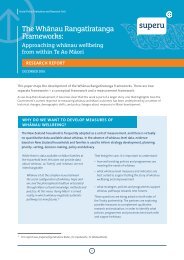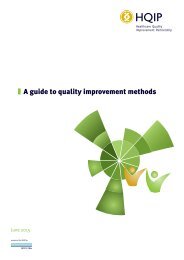2fyY1Py
2fyY1Py
2fyY1Py
You also want an ePaper? Increase the reach of your titles
YUMPU automatically turns print PDFs into web optimized ePapers that Google loves.
asis, and as a model, provisions in the Audiovisual Media Services directive relating to HFSS foods could be strengthened<br />
to restrict cross-border marketing to children of such products within the European Union, for example through regulation.<br />
Alemanno and Garde (257) effectively argued that, for services with significant cross-border implications (such as Internet<br />
advertising), supra-national (i.e. European Union) action is far more effective than action by individual Member States. For<br />
HFSS digital marketing at European Union level (214), however, co- and self-regulatory codes continue to be recommended,<br />
shifting the regulatory burden to Member States.<br />
Ireland and the United Kingdom chose to go beyond European Union recommendations by introducing national legislation<br />
on broadcast HFSS food marketing. Nevertheless, according to European Union internal market rules on the free movement<br />
of goods and services, Member States can impose stricter standards only for marketing exclusively in their jurisdiction;<br />
they may not restrict re-transmission on their territory of media services from other Member States (265). For example,<br />
food advertisements broadcast in the United Kingdom but originating from outside must comply with the laws (or legal<br />
practice) in the country of origin rather than the statutory regulation of the United Kingdom. In this way, Member States are<br />
responsible for ensuring that audiovisual commercial communications by media service providers under their jurisdiction<br />
comply with relevant national legislation, but they cannot challenge another Member State in which media service<br />
providers are less regulated. This is clearly a concern in the continuing absence of European Union legislation, as much<br />
marketing content, particularly digital marketing, may originate from outside a country’s jurisdiction.<br />
Developments in privacy law may have parallels for marketing. The Belgian Court of Appeal recently ruled against the<br />
Belgian Data Protection Agency in its case against Facebook, concluding that only the Irish Data Protection Commission<br />
has jurisdiction over Facebook’s European data processing activities, as Facebook’s European headquarters are in<br />
Dublin. This countered the claim by the Belgian Data Protection Agency that, as Facebook has an incorporated entity in<br />
Belgium (Facebook Belgium), the Data Protection Authority has jurisdiction over its activities (253), although this is in<br />
line with the provisions of the forthcoming European Union GDPR (due to be implemented in 2018). In the context of<br />
continuing uncertainty, comprehensive national regulations targeting marketing originating domestically may have to be<br />
complemented by supra-national regulations on cross-border marketing in order to close all potential loopholes fully.<br />
Some countries have attempted to close some of these loopholes through novel measures in other policy areas. For<br />
example, in the continuing absence of supra-national European Union legislation covering alcohol marketing, Finland<br />
has introduced innovative provisions in its Alcohol Act (266) to attempt to limit cross-border marketing targeted at all<br />
age groups in Finland. The Act covers both direct and indirect marketing and even textual or visual content produced by<br />
consumers or marketing that is intended to be shared by consumers. Under the Act, marketing accessible in Finland that<br />
originates from external operators is not subject to the regulation if it has the same content, irrespective of the country<br />
of destination; however, marketing originating from abroad is subject to the national restriction if the alcoholic beverages<br />
being promoted are placed on the market in Finland and are targeted at the Finnish market in particular. In this way, some<br />
cross-border marketing has been regulated.<br />
Given the jurisdictional and regulatory challenges we have described above that are due to the Internet’s borderless<br />
nature, further coordinated regulation is clearly needed across countries, and supra-national bodies (e.g. the European<br />
Union) have a role to play. As a first step, one way in which national regulation could contribute to reducing cross-border<br />
marketing would be to include provisions such as those in the WHO Framework Convention on Tobacco Control, whereby<br />
restrictions should apply to the placing of advertising, promotion and sponsorship on the Internet or other cross-border<br />
communications technology by any person or entity within the territory of a Party, whether the material targets persons<br />
outside or inside that Party’s territory. Furthermore, restrictions should also apply to any person or entity that broadcasts<br />
advertising, promotion and sponsorship from within the territory of a Party that could be received in another State.<br />
Requiring private Internet platforms to facilitate regulation: examples<br />
Generally, the public sector delegates regulatory responsibility for digital marketing to private actors. For example, public<br />
sector regulation of human rights online in the digital sphere is very limited, and relies mainly on private sector “notice and<br />
takedown procedures” for enforcement of copyright infringement, libel or other content that is considered illegal (249).<br />
This provides for limited liability for Internet platforms, such as Facebook or Instagram, as long as they remove the allegedly<br />
26






